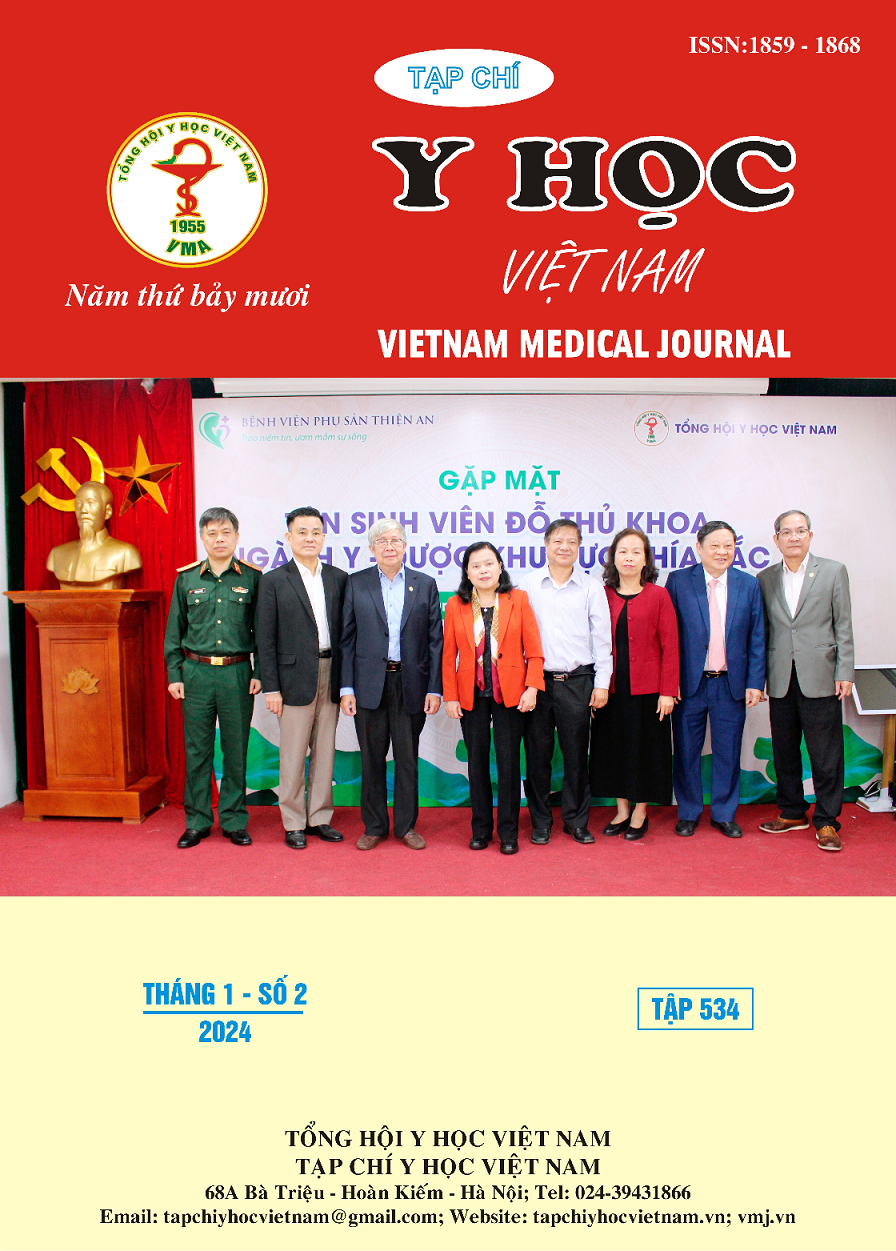EVALUATING ADHERENCE TO ORAL ANTICOAGULANT TREATMENT IN PATIENTS WITH NON-VALVULAR ATRIAL FIBRILLATION AT THE SENIOR STAFF MEDICAL EXAMINATION DEPARTMENT IN 108 MILITARY CENTRAL HOSPITAL
Main Article Content
Abstract
Objective: To evaluate adherence to DOAC oral anticoagulation therapy in patients with atrial fibrillation. Find out the relationship between knowledge and the level of adherence to anticoagulant treatment. Subjects and methods: Prospective, cross-sectional description with a convenient sample size of 101 atrial fibrillation patients taking DOACs. Assess patient knowledge through the Anticogulation Knowledge Tool (AKT) questionnaire and assess treatment compliance using the Morrisky 8 questionnaire (MMAS-8). Results: The treatment compliance rate in the study patient group was high at 73%, while the non-adherent group was only 27%. Knowledge about anticoagulants of the study group of patients is mainly good and average, accounting for 40%, 34%. The poor rate accounts for 26%. Most correct answers about knowledge of anticoagulation treatment were higher among the compliant group than the non-compliant group, the difference was statistically significant, p<0.05. Good and average knowledge groups were associated with treatment adherence p<0.05. The age group <75 years old is related to treatment adherence, while the age group >75 years old does not see this relationship with p <0.05. Conclusion: Patients with knowledge will adhere better to treatment.
Article Details
References
2. Hội tim mạch quốc gia Việt Nam (2022). Khuyến cáo của phân hội nhịp tim Việt Nam chẩn đoán và xử trí rung nhĩ.
3. Balfour L, Kowal J, Silverman A, Tasca GA, Angel JB, Macpherson PA, et al. A randomized controlled psycho-education intervention trial: Improving psychological readiness for successful HIV medication adherence and reducing depression before initiating HAART. AIDS Care. 2006;
4. Beyer-Westendorf J, Ehlken B, Evers T. Real-world persistence and adherence to oral anticoagulation for stroke risk reduction in patients with atrial fibrillation. Europace. 2016; 18: 1150–1157.
5. Clarkesmith DE, Pattison HM, Lip GY, Lane DA. Educational intervention improves anticoagulation control in atrial fibrillation patients: the TREAT randomized trial. PLoS One. 2013
6. Lane DA, Ponsford J, Shelley A, Sirpal A, Lip GYH. Patient knowledge and perceptions of atrial fibrillation and anticoagulant therapy: Effects of an educational intervention programme. The West Birmingham Atrial Fibrillation Project. Int J Cardiol. 2006;110: 354–358.
7. Motoyasu Miyazaki, Shelley A, Sirpal A, Lip GYH. Association between medication adherence and illness perceptions in atrial fibrillation patients treated with direct oral anticoagulants: An observational crosssectional pilot study. 2016
8. Obamiro Kehinde O, Chalmers Leanne, Bereznicki Luke RE. Development and Validation of an Oral Anticoagulation Knowledge Tool (AKT). Ploson, 11(6).


